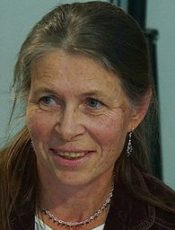In election year, Germany’s Christian Democrats are frantically trying to find a way out of the mess the current CDU chairperson Angela Merkel put them in when she opened the country’s borders to an avalanche of refugees. It is not an easy thing to do, especially as the party’s leader cannot own up to her mistake out loud since she would then have to give up her dream of holding the post of chancellor for another term. That’s why Merkel’s forcedly optimistic slogan «We can do it!» is technically still being used; the German Chancellor remains outraged at Trump’s immigrant ban and says that Germany will continue to take in refugees from conflict zones.
At the same time, the government is demonstrating to voters that it can get the situation under control. A few token gestures have been made to send home refugees who have not been granted refugee status (refugees from Afghanistan so far), and an agreement has been signed with Turkey. According to official figures, the number of asylum requests fell threefold in 2016 compared with 2015’s record high. The German media has even started reporting crimes committed by refugees, something it had previously shied away from.
The Christian Democrats are extremely reluctant to leave the centre of the political spectrum, a position they have successfully occupied since the mid-2000s, but within the existing political system, they are expected to prevent the further strengthening of the Alternative for Germany party with its offensive anti-immigration slogans. This task is seriously compounding Merkel’s leadership, especially as voters are already feeling fatigued by her as a politician – otherwise how can one explain the sudden rise in popularity of Social Democrat Martin Schulz, whose previous political career was built in Brussels and Strasbourg rather than Berlin.
In this difficult situation, where the Christian Democrats are having to fend off attacks from all sides, criticism of the chancellor from abroad is being felt particularly acutely. When Donald Trump called Merkel’s refugee policy a «catastrophic mistake», Germany tried not to notice and put it down to the US president’s habit of making outlandish statements. It turns out that Trump is not alone in this assessment, however. In an interview with the German newspaper Bild am Sonntag, Austria’s Foreign Affairs Minister Sebastian Kurz had no scruples about following Trump’s example and calling Merkel’s immigration policy «false», adding that the policy has also, unfortunately, been supported by several EU leaders and the European Commission.
Kurz’s statement came at a bad time for Merkel, who, at that exact moment, was on an official visit to Egypt with the intention of signing an agreement with the Egyptian government similar to Germany’s current agreement with Turkey. Merkel had arrived in Egypt from Tunisia, where she managed to achieve this exact goal, despite the fact that unlike Turkey, the countries of North Africa are not hurrying to sign agreements with Germany. The idea of entering into such an agreement with Libya, for example, where the majority of African migrants are coming from, is delusional, since Libya has been reduced to such a state that the country is not in a position to sign an agreement with anybody.
As for the ‘constructive’ part of Kurz’s statement, it certainly comes across as sarcasm, if not mockery: the Austrian minister suggests that refugee camps be set up outside of the EU and, by way of example, mentions… Georgia, Egypt, and the Balkans. He might as well suggest that refugees be moved to Latvia or Romania. It stands to reason that refugees from the Middle East did not rush to Germany in order to ultimately end up in Georgia or Egypt.
In a nutshell, everyone understands that the Austrian Minister for Foreign Affairs has a developed sense of humour. But looked at seriously, Sebastian Kurz’s proposal sounds like yet another condemnation of Merkel’s refugee policy, and especially Berlin’s idea of distributing refugees around the EU according to a quota system.
In this instance, however, it is not about the fantastical nature of Kurz’s proposal itself, but the fact that it has clearly been timed to coincide with the run up to the German federal elections this autumn. Judging by the online comments, the German people, some joking, some serious, are willing to vote for Georgia or Egypt just to spite Angela Merkel, who they’ve had enough of: «Kurz should be given citizenship and elected chancellor so that politics can go back to being reasonable», writes Die Welt.









